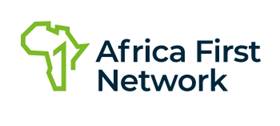INSIGHTS: Debt relief, but properly: a proposal
The war in Ukraine and high inflation are hitting Africa with particular force. Nevertheless, a classic debt relief would be wrong. Instead, the principle should be: replace bad debts with good debts.
World Bank President David Malpass recently called for debt relief for developing countries. “High inflation is an economic and social disaster for many poorer countries,” he said in an interview in April. “The war in Ukraine should now lead to a rethink in rich countries. We need to free poor states from their crushing debts.”
This sounds good, but in reality it is a risky undertaking with dangerous side effects. For example, after the 2005 debt relief, several African countries took advantage of new leeway to borrow money from China – laying the foundation for dependencies that have since turned out to be red hot.
“Among the 20 most indebted countries in Africa, the IMF sees China as the main reason for the current situation,” it said a few months ago in the “Handelsblatt”. And: “The framework conditions for many Chinese loans […] show how aggressively China granted its loans.”
This leads directly to the next problem: China is the most important creditor in several African countries. And in view of severe geopolitical tensions, it is unlikely that Peking will join a Western initiative for remission. The Xi regime could even use a unilateral waiver for further lending and thus expand its influence on the continent.
What Africa really needs
In addition, many African governments themselves view debt relief with scepticism. They fear a negative signal to the international capital markets, making it more difficult for them to raise money for their important infrastructure programmes. This concern cannot be dismissed.
A debt relief plan must therefore ensure that countries do not pay for lower debt levels with poorer financing opportunities. And this is where the EU comes in: it could offer to write off old debts – and replace them with new loans at better conditions and even top them up.
The – still – low interest rates offer a good opportunity to do so, and in many cases it should be sufficient for the EU to issue guarantees. Refinancing would thus be possible without significantly burdening public budgets (see the Africa First concept).
One thing is clear: Only if developing countries can go ahead with infrastructure programmes, broad parts of the population would benefit from a debt relief. It has been proven that infrastructure development is an important driver of inclusive growth: it promotes entrepreneurial investment and thus the creation of jobs and value chains.
To whom the EU should make fair offers
However, it is important to ensure that new loans are actually put to good use. The offer to swap debts and increase loans should therefore be reserved for governments that are pushing ahead with ambitious infrastructure programmes and reforms in the spirit of a social-ecological market economy.
And the good news is that several governments in Africa have started to establish fair minimum wages and anti-corruption standards, to build up social security systems and to focus on solar and wind energy. In addition, many are increasingly promoting investments in domestic agriculture to counteract the looming hunger crisis.
In such cases, a fair re-financing would be a strong impetus for inclusive growth, a stronger economy and rising government revenues. Where governments dither with reforms, on the other hand, it would be foreseeable that we would have to discuss debt relief again in a few years.
Follow Martin A. Schoeller and Daniel Schönwitz on LinkedIn.
